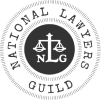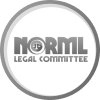
Embezzlement is a white collar crime, meaning the act is nonviolent with financial motivation. Though this type of crime may seem less serious than violent crimes, embezzlement schemes may get extremely complex and can leave victims in complete financial ruin. Simply, embezzlers take someone else’s money or personal property. However, embezzlement is different than theft because an embezzler actually has legal access what they steal. Embezzlers do not have legal ownership of the money or property, but they temporarily have possession of it and decide to keep it permanently for their own benefit.
In general, to establish a case for embezzlement, the prosecution must establish four elements, each beyond a reasonable doubt:
- a fiduciary relationship between the defendant and the party who lost the property
- the property came into the defendant’s possession through that relationship
- the defendant fraudulently assumed ownership of the property
- the defendant intentionally misappropriated the property
Embezzlement has steep penalties. While specific penalties will depend on the value of the misappropriated property, penalties can include prison time, fines, probation and other punishments. In addition, a person can face serious reputation damage, jeopardizing his or her personal and professional future.
Examples of Embezzlement
There is no one formula for embezzlement and the charge may arise out of many different situations. Some examples include:
- A person in charge of a relative’s money keeping some of the money for themselves.
- A store cashier takes money from the register they are charged to operate.
- An investment broker who keeps his clients’ money instead of investing it.
- A bank teller taking deposit money.
- Corporate employees use elaborate schemes to falsify records and take corporate funds.
- Ponzi schemes, which pay money to investors from funds paid by new investors, and the brokers keep the profits.
Embezzlement Penalties
The penalties for embezzlement in Pennsylvania vary depending on the amount of money or value of the property embezzled. The potential penalties increase as the value goes up:
- Less than $50 = up to one year in jail and/or $2,500 fine
- $50 – $199 = up to two years in prison and/or $5,000 fine
- $200 – $1,999 = up to five years in prison and/or $10,000 fine
- $2,000 or more = up to seven years in prison and/or $15,000 fine
Contact An Embezzlement Lawyer at The Zeiger Firm
Given the seriousness of this crime, your attorney must build your strongest defense possible and do so as early as possible. The Philadelphia, Pennsylvania attorneys at The Zeiger Firm understand the many laws that apply to these cases, and we zealously will investigate and defend you against the charges. With aggressive investigation and lawyering, our attorneys will try to convince the authorities to drop and dismiss cases at their inception. When cases do go forward, our white-collar defense lawyers aggressively and zealously will defend you against these charges.
The Federal Bureau of Investigation, the U.S. Attorney’s Office, as well as state and local law enforcement agencies, have assembled teams of investigators and prosecutors who handle these cases. To fight these charges, you need defense attorneys who have handled these cases, and understand the nature of the charges and how to fight them.
When you need a Philadelphia, Pennsylvania attorney to defend you when arrested and charged with embezzlement, contact The Zeiger Firm, who represent every client zealously in order to obtain the best results possible in each case. To arrange a consultation, please give us a call at 215-546-0340 or send us an email via the form to the left.
















